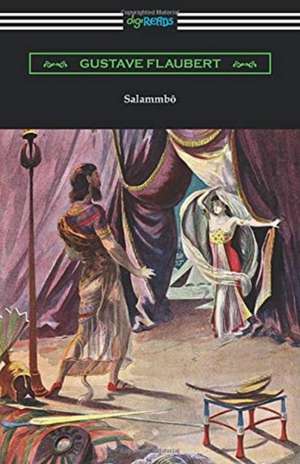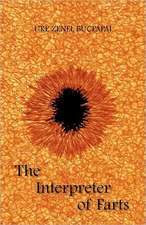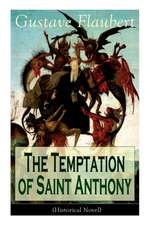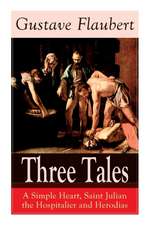Salammbo
Autor Gustave Flauberten Limba Engleză Paperback – 27 mai 2020
| Toate formatele și edițiile | Preț | Express |
|---|---|---|
| Paperback (13) | 61.07 lei 3-5 săpt. | |
| CreateSpace Independent Publishing Platform – | 61.07 lei 3-5 săpt. | |
| CREATESPACE – | 62.65 lei 3-5 săpt. | |
| Penguin Books – 27 apr 1977 | 67.62 lei 23-34 zile | +22.31 lei 6-10 zile |
| Mint Editions – feb 2021 | 76.43 lei 3-5 săpt. | |
| CREATESPACE – | 80.28 lei 3-5 săpt. | |
| CreateSpace Independent Publishing Platform – | 81.83 lei 3-5 săpt. | |
| Aegypan Press – 28 feb 2009 | 114.29 lei 3-5 săpt. | |
| CREATESPACE – | 126.93 lei 3-5 săpt. | |
| Digireads.com – 27 mai 2020 | 83.09 lei 6-8 săpt. | |
| – | 85.03 lei 6-8 săpt. | |
| Mondial – 20 feb 2006 | 106.66 lei 6-8 săpt. | |
| Echo Library – 19 feb 2006 | 127.01 lei 38-44 zile | |
| TREDITION CLASSICS – 31 oct 2011 | 223.13 lei 6-8 săpt. | |
| Hardback (3) | 128.02 lei 3-5 săpt. | |
| Mint Editions – 15 feb 2021 | 128.02 lei 3-5 săpt. | |
| Titan – 29 ian 2019 | 211.41 lei 3-5 săpt. | +95.71 lei 6-10 zile |
| Aegypan Press – 31 iul 2011 | 213.45 lei 6-8 săpt. |
Preț: 83.09 lei
Nou
Puncte Express: 125
Preț estimativ în valută:
15.90€ • 17.32$ • 13.40£
15.90€ • 17.32$ • 13.40£
Carte tipărită la comandă
Livrare economică 23 aprilie-07 mai
Preluare comenzi: 021 569.72.76
Specificații
ISBN-13: 9781420968842
ISBN-10: 142096884X
Pagini: 224
Dimensiuni: 140 x 216 x 13 mm
Greutate: 0.29 kg
Editura: Digireads.com
ISBN-10: 142096884X
Pagini: 224
Dimensiuni: 140 x 216 x 13 mm
Greutate: 0.29 kg
Editura: Digireads.com
Notă biografică
Gustave Flaubert (1821¿1880) was a French novelist who was best known for exploring realism in his work. Hailing from an upper-class family, Flaubert was exposed to literature at an early age. He received a formal education at Lycée Pierre-Corneille, before venturing to Paris to study law. A serious illness forced him to change his career path, reigniting his passion for writing. He completed his first novella, November, in 1842, launching a decade-spanning career. His most notable work, Madame Bovary was published in 1856 and is considered a literary masterpiece.
Descriere
Descriere de la o altă ediție sau format:
An epic story of lust, cruelty, and sensuality, this historical novel is set in Carthage in the days following the First Punic War with Rome.
An epic story of lust, cruelty, and sensuality, this historical novel is set in Carthage in the days following the First Punic War with Rome.



























